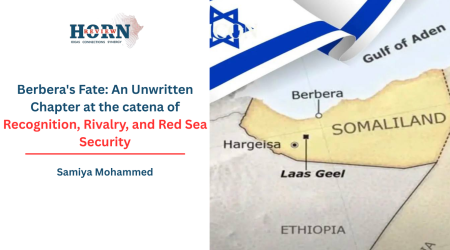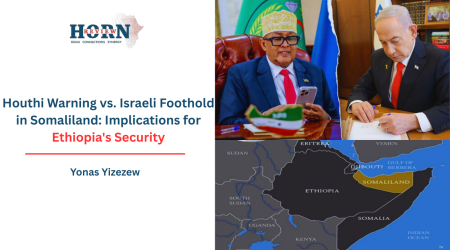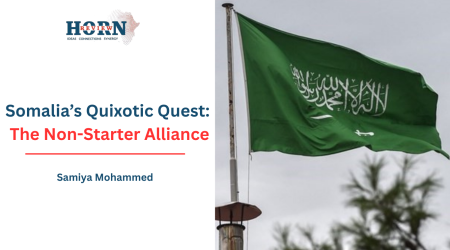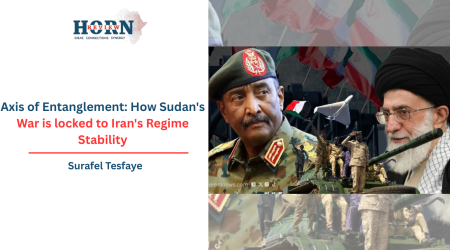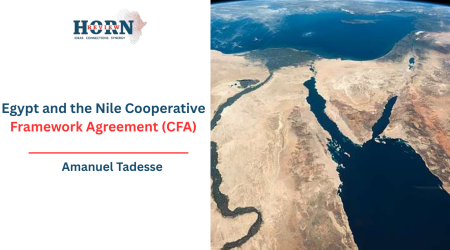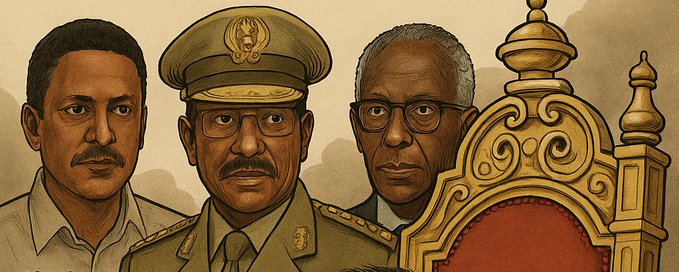
21
May
Eritrea’s Quiet Storm: Who Will Inherit the Authoritarian Mantle?
Since gaining independence, Eritrea has, for over three decades, been governed under the firm and unyielding grip of President Isaias Afwerki. The state has functioned in the absence of elections, a functional constitution, or any meaningful power-balancing institutions. True authority resides not within formal ministries or the dormant National Assembly, but rather within Afwerki himself and a narrow circle of trusted loyalists who effectively control the ruling party, the military, and the security services.
As President Afwerki grows older – governing without term limits, without a vice president, and without any clear constitutional framework for succession – the question of who might succeed him looms ever larger over Eritrea’s political future. The regime’s continuity appears precariously dependent on his personal authority. Within this uncertain context, four key figures emerge as the most consequential contenders or power brokers in the post-Afwerki era. Each is rooted in a different institutional pillar of the state.
Yemane Gebreab: The Party’s Chief Ideologue
Born in 1954, Yemane Gebreab is slightly younger than President Afwerki and serves as the principal ideologue of the People’s Front for Democracy and Justice (PFDJ). Although he does not occupy an official government position, he effectively heads the Shabia Political Bureau. In this influential role, he manages the party’s internal affairs, crafts and disseminates its ideological messaging, mentors cadres of the Young PFDJ, and remains one of Afwerki’s most trusted confidants.
Yemane’s influence permeates all levels of the party structure, and he is one of the few individuals outside of the president himself who convenes the inner circle of power. Unlike unambitious generals or untested successors, Yemane embodies the ideological heritage of Shabia – he is a veteran of the armed struggle and deeply embedded in the PFDJ’s organizational DNA. Should Afwerki exit the political scene, Yemane’s unrivaled stature within the party machinery makes him the most plausible figure to steward a continuity-based transition.
Abraham Isaias: The Heir Apparent?
In recent years, President Afwerki has quietly elevated his elder son, Abraham Isaias, assigning him the role of “Special Advisor” on strategic studies and including him in key diplomatic delegations abroad. This visible grooming suggests a potential dynastic succession plan, wherein Abraham would eventually inherit the presidency.
This possibility has been widely discussed among Eritrean communities in the diaspora. However, within the governmental apparatus, Abraham faces inherent limitations. He did not participate in the armed liberation struggle, lacks the historical camaraderie forged in wartime, and does not possess the revolutionary credentials that carry legitimacy within the upper echelons of the PFDJ. Without the direct involvement and persistent backing of his father, the entrenched party bureaucracy and veteran cadres are unlikely to recognize his authority. Maintaining Abraham’s upward trajectory would require continuous and direct intervention by President Afwerki himself – an effort that could falter once the patriarch is no longer on the scene.
Brigadier General Abraha “Wedi” Kassa: The Security Tsar
For decades, Brigadier General Abraha Kassa – widely known as “Wedi Kassa” – has served as the head of Eritrea’s National Security Office. This powerful internal intelligence agency oversees surveillance, counterintelligence, and the suppression of political dissent. His unwavering loyalty to President Afwerki, his intimate knowledge of the regime’s inner workings, and his command of the security services position him as a formidable actor in any succession scenario.
In the event of an abrupt power vacuum, control of the security apparatus could prove decisive. Wedi Kassa, in theory, possesses the capability to lock down key state institutions and either assume leadership himself or install a chosen proxy. However, Eritrea’s formal power structure is anchored not in its security services but in the PFDJ’s Political Bureau, headed by Yemane Gebreab. Without the party’s endorsement, even the head of the NSA would face significant challenges in transforming coercive power into a sustainable political mandate.
General Filipos Woldeyohannes: The Military’s Influence
General Filipos Woldeyohannes, the Chief of Staff of the Eritrean Defense Forces, commands one of Africa’s most disciplined and vigilant standing armies. In many authoritarian contexts, the military often emerges as the ultimate arbiter in times of political succession. Should a leadership void arise, Filipos – or another senior officer – could theoretically mobilize military resources to assert control.
Nevertheless, Eritrea’s system has been meticulously engineered to prevent such an outcome. The PFDJ maintains deep institutional influence within the military, regularly rotates zone commanders, and leverages the party’s control over military-affiliated economic enterprises. These mechanisms prevent any single military figure from consolidating autonomous power. Although the military remains a potent force, it is structurally subordinate to the party leadership -specifically the Political Bureau – making a purely military takeover far less plausible than a transition orchestrated from within the party.
A Deliberately Opaque Architecture of Succession
Eritrea’s succession architecture remains deliberately opaque, entirely dependent on the personal decisions of President Afwerki. Despite some indications of a dynastic plan involving his son Abraham, the regime’s true center of gravity lies within the PFDJ’s political machinery and the ideological infrastructure maintained by Yemane Gebreab.
Although the security services under Wedi Kassa and the military under General Filipos hold formidable instruments of coercion, they lack the institutional legitimacy to unilaterally dictate succession. Barring a well-planned and clearly executed handover orchestrated by Afwerki himself – or a sudden internal rupture within the ruling elite – the most credible successor to Eritrea’s one-party regime remains Yemane Gebreab. He is the figure who, for decades, has preserved the ideological soul of the PFDJ and embodied the inner logic of Afwerki’s rule.
By Horn Review Editorial



